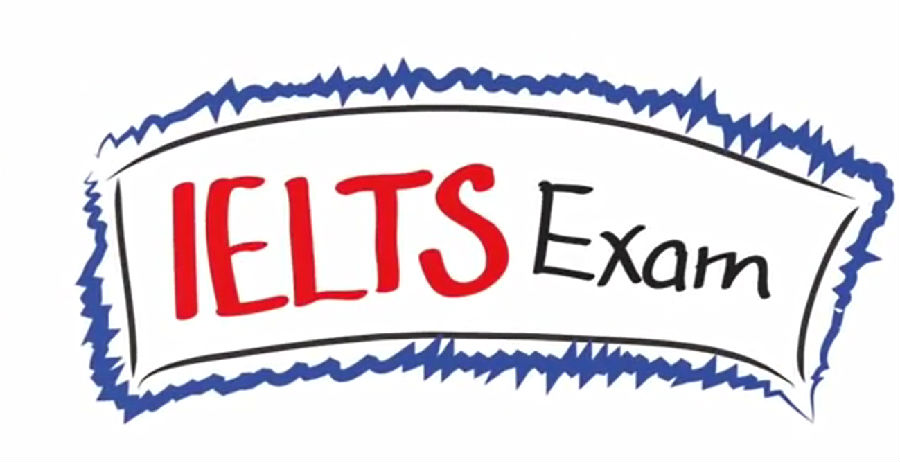(单词翻译:单击)
So you've decided to take the IELTS exam, well done!
你决定考雅思了,太棒了!
Our expertise is your opportunity.
英国文化委员会的专业建议能助你一臂之力。
Here we look at the criteria of grammatical range and accuracy.
首先我们来看看评分标准之一的语法掌握与运用。
This is one of four criteria on which he will be tested. Look for the other three criteria in other videos.
评分标准共有四项。其余几项评分标准参见我们的其他课程。
This criteria focuses on the range and accuracy of the grammar demonstrated by the test taker.
语法掌握与运用考察的是受试者所表现出的语法掌握度和准确性。
For grammatical range, consider whether what you are describing is something that happened in the past, use past tenses;
至于语法掌握度,也就是考察你描述过去的事物时是否使用了过去时;
Is happening in the present? Use similar present tenses; or is predicting the future? Use a variety of future tenses.
描述当下的事物是否使用现在时;或者描述未来的事物时是否使用了各类将来时。
Sometimes you can use a combination of these different tenses, for example,
有时这些时态可以结合起来使用,比如,
when analyzing an IELTS Task 1 diagram, note the time period being described and use the matching tenses.
在分析雅思写作第一部分的图表时,要注意图表的时间范围,使用相应的时态。
When describing the information, demonstrating a range of written grammar might also mean using some of these tenses:
描述信息时要体现你掌握语法的程度,也意味着正确使用这些时态:
comparatives, conditionals, modal verbs and the passive tense, especially for Task 1 process descriptions.
比较级、条件句、情态动词、被动语态,尤其在概括第一部分某个过程的时候。
Look for our speaking and grammar download for examples of all these tenses.
请参看我们的口语和语法视频中关于这些时态的例子。
It's important to learn and practice a variety of grammatical tenses.
学习和练习使用各种语法时态很有必要。
In all writing tasks, also use a variety of complex structures.
在所有的写作考题中,还要使用一些较复杂的语法结构。
Complex structures are sentences with multiple bits of information.
复杂的语法结构指的是包含多个信息的句子。
A simple sentence usually has a single piece of information.
简单句通常指包括单一信息。
When you practice writing, transform simple sentences into more complex sentences by adding more information to the sentence.
在你的写作练习中,你可以通过在简单句上增加一些信息来把它变成更复杂的句子。
For example, ask yourself some wh- questions to see what else you can add to the original sentence.
比如,问自己一些“wh-问题”,包括 what、when、why、who 等等,琢磨一下你还能在最初的简单句上增加些什么。
For instance, "These days everyone has a mobile phone."
比方说,简单句是“现如今人手一部手机。”
Think to yourself: who, what, why?
思考一下:是谁?发生了什么?原因是什么?
"These days people of all generations have mobile phones, especially smartphones because you can do so many things with them."
复杂句就是:“现在不论年龄大小,几乎每个人都有手机,尤其是智能手机,因为用手机可以做的事情太多了。”
In your writing there should be a balance of simple and complex sentences.
在你的作文中,简单句和复杂句的数量应该相对平衡。
In addition, punctuation can change meaning.
此外,标点不同,句子的意思也可能不同。
For instance, we got in through the window which someone had left open.
比如,我们是从那扇开着的窗户进来的(别的窗户可能是关着的)。
We got in through the window, which someone had left open.
我们从窗子里进来,是有人忘了关。(说明是从窗子进来,而不是门。)
Students aren't expected to be 100 percent accurate in their writing.
写作考试并不要求考生的作文100%准确。

However, control is important. Some grammatical errors impact communication more than others.
但是错误也要控制在范围内,因为有的语法错误会更影响交流。
You will be scored according to the impact of errors on communication rather than on the number of mistakes.
考官不是根据你的错误数量,而是根据你的错误对交流的影响来评分的。
Leave time at the ended writing to identify and correct errors.
留出时间来检查和修改作文中的错误。
You will always find grammar or spelling mistakes.
语法和拼写错误经常出现。
Correcting these can improve your score.
改掉这些错误能够有效提高得分。


